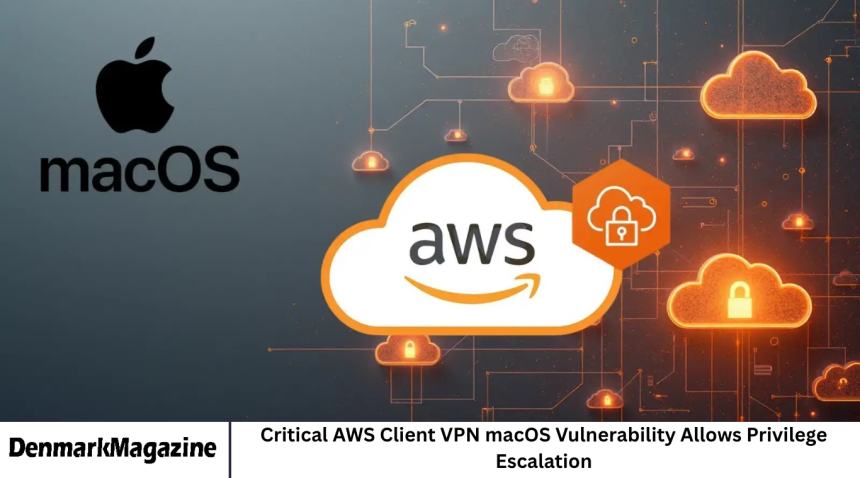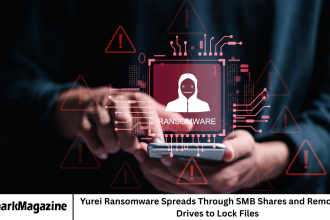A serious security flaw has been discovered in the AWS Client VPN software for macOS, potentially allowing attackers to gain elevated system privileges. The vulnerability, recently disclosed by cybersecurity researchers, poses a significant risk to users relying on Amazon Web Services’ VPN solution to securely connect to cloud environments.
The issue affects specific versions of the AWS Client VPN for macOS and could allow local attackers to exploit the flaw to execute malicious code with administrative rights. This discovery highlights the ongoing importance of securing endpoint applications and maintaining rigorous patching routines across enterprise systems.
Overview of the Vulnerability
The vulnerability resides in how the AWS Client VPN for macOS handles certain system permissions during operation. According to researchers, the flaw can be exploited by an attacker who already has limited access to the system. By leveraging the vulnerability, the attacker could escalate privileges and gain administrative control over the macOS device.
Once administrative privileges are obtained, an attacker could install additional malware, modify system configurations, or gain access to sensitive files. In environments where the affected system is used to connect to AWS cloud services, the compromise could potentially extend beyond the endpoint, threatening wider network integrity.
Amazon Web Services acknowledged the issue shortly after it was reported and began working on a security update to address the flaw. The company has since released a patched version of the software and has urged all users to update immediately.
How the Flaw Was Discovered
The vulnerability was uncovered by independent security researchers conducting a routine analysis of VPN clients used for enterprise cloud access. During testing, researchers noticed that the AWS Client VPN macOS version was not properly restricting certain system operations during startup and connection processes.
This misconfiguration allowed local users to trigger privilege escalation by manipulating system-level permissions. In simpler terms, it enabled someone with basic user access to trick the system into granting full administrative rights—a scenario that could have severe security implications.
Researchers responsibly disclosed the vulnerability to Amazon through its official security reporting channel. AWS responded promptly, investigated the issue, and released an updated client with the vulnerability resolved.
Impact on Users and Organizations
The impact of this vulnerability varies depending on the user’s environment. For individual users, exploitation could result in unauthorized access to files, passwords, and system resources. For organizations, particularly those with employees using AWS Client VPN on macOS devices, the potential impact could be far greater.
Attackers could leverage compromised systems to access corporate networks, move laterally within an organization, or intercept secure communications between users and AWS cloud resources. The vulnerability could serve as a stepping stone in a broader cyberattack if left unpatched.
Security experts emphasize that even though the flaw requires local access to exploit, it remains critical to address. Many modern cyberattacks begin with an initial foothold on a single device, and privilege escalation vulnerabilities such as this one often serve as the key to expanding control.
Amazon’s Response and Patch Release
Amazon Web Services acted quickly after the vulnerability disclosure, confirming that the flaw affected specific versions of AWS Client VPN for macOS. The company developed and released an updated version that includes a patch to eliminate the issue.
In a security advisory, AWS recommended that all users upgrade to the latest version immediately and verify that their systems are not running outdated or vulnerable builds. The company also reassured customers that there was no evidence of the flaw being exploited in the wild prior to its disclosure.
In addition to the software patch, AWS reminded users to follow best practices, such as applying regular system updates, using strong endpoint protection, and restricting local account privileges to minimize potential damage from similar vulnerabilities.
Lessons for macOS and VPN Security
This incident underscores an important lesson for macOS users: while Apple’s operating system has a strong reputation for security, it is not immune to vulnerabilities, especially in third-party software. As more businesses rely on cloud-based VPN clients to securely access corporate infrastructure, these applications have become increasingly attractive targets for attackers.
Organizations are encouraged to take a layered approach to security, ensuring that VPN software is updated regularly, configurations are verified, and employees are trained to recognize potential signs of compromise. Additionally, IT teams should adopt endpoint monitoring tools capable of detecting privilege escalation attempts in real time.
Broader Implications for Cloud Security
The AWS Client VPN vulnerability also raises broader concerns about the security of cloud connectivity tools. VPN clients serve as a bridge between local devices and remote servers—making them a critical component of cloud infrastructure.
If compromised, such tools can expose not only the endpoint but also sensitive cloud workloads and internal company systems. This highlights the need for cloud providers and enterprises to work together on proactive vulnerability management and rapid incident response.
With cyber threats growing more sophisticated, companies must recognize that vulnerabilities in endpoint tools—such as VPN clients—can have cascading effects across entire networks. Continuous vulnerability assessments and patch management processes should be prioritized to mitigate such risks.
Steps Users Should Take
AWS recommends immediate action for all users of the macOS Client VPN. The steps include uninstalling the affected version, downloading the latest patched release from the official AWS website, and verifying installation integrity.
Frequently Asked Questions
What is the AWS Client VPN vulnerability about?
It is a flaw in the macOS version of AWS Client VPN that allowed local users to escalate privileges and gain administrative access to the system.
Who discovered the vulnerability?
Independent cybersecurity researchers discovered the flaw during a routine security analysis and responsibly reported it to Amazon.
Has AWS fixed the issue?
Yes, AWS has released a patched version of the Client VPN for macOS that resolves the vulnerability. Users are strongly advised to update immediately.
Was the vulnerability exploited before disclosure?
According to AWS, there is no evidence that the flaw was exploited in the wild before it was reported and patched.
How can users protect themselves?
Users should update to the latest version of the AWS Client VPN, avoid using outdated builds, and follow general macOS security best practices.
Does this issue affect Windows or Linux versions?
As of current reports, the vulnerability appears limited to the macOS version of AWS Client VPN. Other operating systems are not affected.
Why is privilege escalation dangerous?
Privilege escalation allows attackers to gain full control over a system, install malware, steal data, or manipulate configurations, often leading to more severe security breaches.
Users should also restart their devices after installation to ensure the patch is properly applied. For enterprise users, system administrators should deploy the update across all managed macOS devices using centralized IT management tools.
In addition, security teams should review system logs for any unusual activity that could indicate prior exploitation attempts. Even if no signs of compromise are found, maintaining awareness and proactive monitoring remain essential.
Conclusion
The discovery of the critical AWS Client VPN macOS vulnerability serves as a timely reminder that even trusted software solutions can harbor serious security flaws. Privilege escalation vulnerabilities are among the most dangerous, as they can turn minor breaches into full system compromises.
While AWS acted swiftly to resolve the issue, the incident reinforces the need for constant vigilance, timely updates, and strong cybersecurity hygiene. Users and organizations must ensure that their VPN clients and connected systems remain patched and monitored to prevent exploitation.









